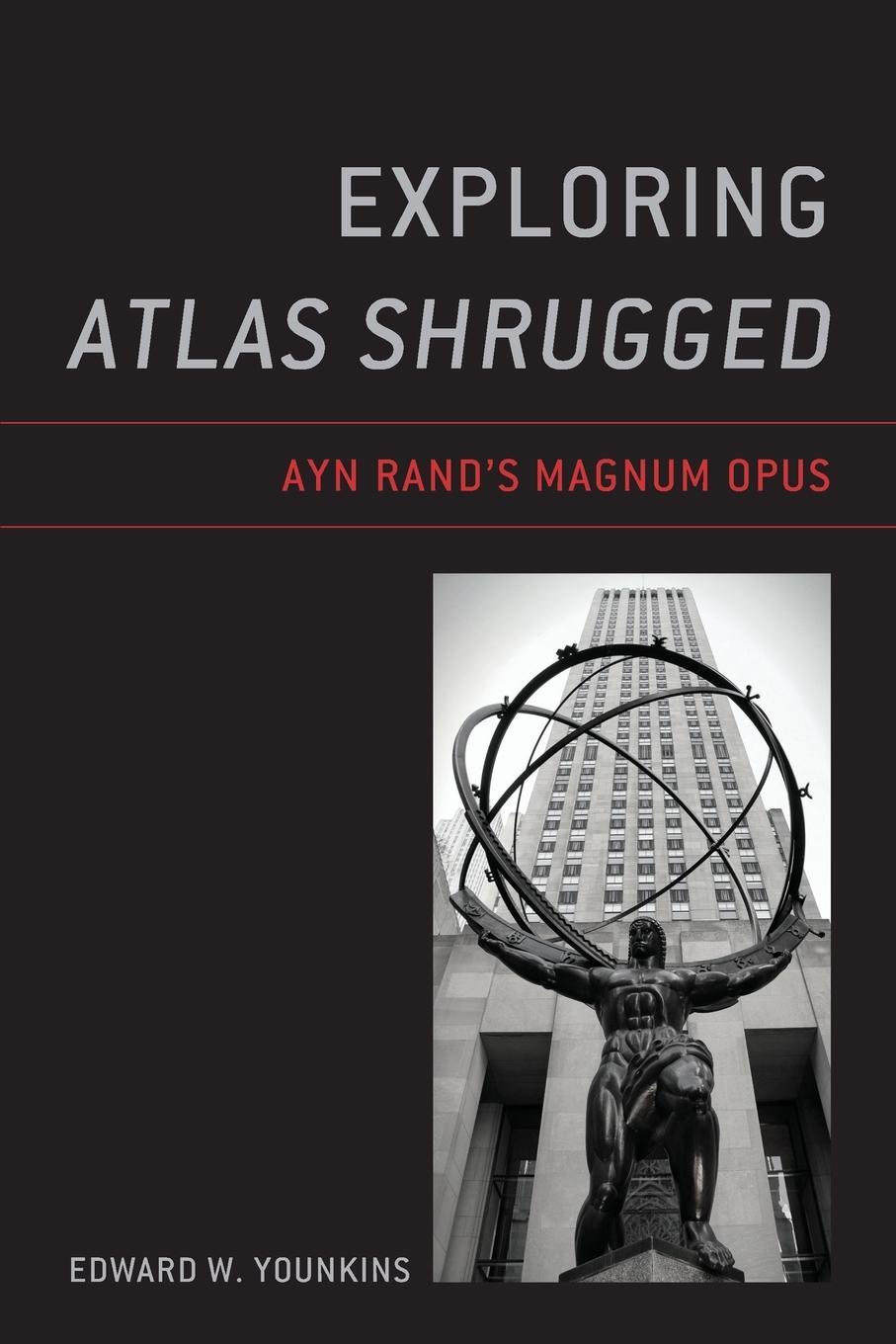Dekorationsartikel gehören nicht zum Leistungsumfang.
Sprache:
Englisch
57,95 €*
Versandkostenfrei per Post / DHL
Lieferzeit 1-2 Wochen
Kategorien:
Beschreibung
Since first published in 2002, After Capitalism has offered students and political activists alike a coherent vision of a viable and desirable alternative to capitalism. David Schweickart calls this system Economic Democracy, a successor-system to capitalism which preserves the efficiency strengths of a market economy while extending democracy to the workplace and to the structures of investment finance. In the second edition, Schweickart recognizes that increased globalization of companies has created greater than ever interdependent economies and the debate about the desirability of entrepreneurship is escalating. The new edition includes a new preface, completely updated data, reorganized chapters, and new sections on the economic instability of capitalism, the current economic crisis, and China. Drawing on both theoretical and empirical research, Schweickart shows how and why this model is efficient, dynamic, and applicable in the world today.
Since first published in 2002, After Capitalism has offered students and political activists alike a coherent vision of a viable and desirable alternative to capitalism. David Schweickart calls this system Economic Democracy, a successor-system to capitalism which preserves the efficiency strengths of a market economy while extending democracy to the workplace and to the structures of investment finance. In the second edition, Schweickart recognizes that increased globalization of companies has created greater than ever interdependent economies and the debate about the desirability of entrepreneurship is escalating. The new edition includes a new preface, completely updated data, reorganized chapters, and new sections on the economic instability of capitalism, the current economic crisis, and China. Drawing on both theoretical and empirical research, Schweickart shows how and why this model is efficient, dynamic, and applicable in the world today.
Über den Autor
David Schweickart is a professor of philosophy at Loyola University Chicago. He holds doctorate degrees in both mathematics and philosophy. He is the author of Capitalism or Worker Control and articles on social, political, and economic philosophy. His work has been translated into French, Spanish, Catalan, and Chinese.
Inhaltsverzeichnis
Preface to the Revised Edition
Preface to the 2002 Edition
Chapter 1: Counterproject, Successor-System, Revolution
1.1 The Counterproject
1.2 Successor-System Theory
1.3 Historical Materialism
1.4 Criteria
1.5 Revolution
1.5.1 A Note on Gender
1.6 An Outline of the Argument
Notes
End
Chapter 2: Justifying Capitalism
2.1 What Is "Capitalism"? What Is A "Capitalist"?
2.2 Neoclassical Shenanigans: Marginal Product as Contribution
2.3 Capitalism's White Knight: The Entrepren[...] Risk and Reward: Playing Reverse-Lotto
2.5 The Utility (And Disutility) Of Deferred Consumption
2.6 Tina
Notes
End
Chapter 3: Economic Democracy: What It Is
3.1 Economic Democracy: The Basic Model
3.1.1 Worker Self-Management
3.1.2 The Market
3.1.3 Social Control of Investment
3.2 The Viability of Economic Democracy
3.3 The Mondragon "Experiment"
3.4 A Note on the Public Sector
3.5 Economic Democracy: The Expanded Model
3.5.1 The Government as Employer-Of-Last-Resort
3.5.2 Socialist Savings And Loan Associations
3.5.3 Capitalists Under Socialism
3.6 Fair Trade, Not Free Trade
Notes
End
Chapter 4: Capitalism Or Socialism? Inequality, Unemployment, Overwork, Poverty
4.1 Workplace Democracy: Some Behavioral Consequences of Structural Change
4.2 Inequality
4.3 Unemployment
4.3.1 A Note on Inflation
4.4 Overwork
4.5 Poverty
4.5.1 Poverty in Rich Countries
4.5.2 Poverty in Poor Countries
4.5.3 A Note on Racism
4.5.4 A Note On Immigration
Notes
End
Chapter 5: Capitalism Or Socialism? Economic Instability, Environmental Degradation, Democracy
5.1 Economic Instability
5.1.1 A Note on the Current Crisis
5.2 Environmental Degradation
5.2.1 Overpopulation
5.2.2 Food Scarcity
5.2.3 Pollution/Climate Change
5.3 Democracy (Lack Thereof)
5.3.1 A Note On Anticommunism
5.3.2 A Note On Liberty
5.3.3 A Note On Political Parties
Notes
End
Chapter 6: Getting From Here to There
6.1 Economic Democracy as an Orienting Device
6.1.1 How the World Looked Then (2001)
6.1.2 How the World Looks Now (2011)
6.1.3 A Note on China
6.2 An Economic Democracy Reform Agenda
6.2.1 Democratizing Labor
6.2.2 Democratizing Capital
6.2.3 Toward Full Employment
6.2.4 Toward Fair Trade
6.2.5 Democratizing Democracy
6.3 From Reform to Revolution
6.3.1 Radical Quick
6.3.2 Somewhat Slower (With Concern This Time For Stockholders)
6.3.3 Slower Still (Without a Financial Meltdown)
6.4 A New Communism?
6.5 A New World
Notes
End
Preface to the 2002 Edition
Chapter 1: Counterproject, Successor-System, Revolution
1.1 The Counterproject
1.2 Successor-System Theory
1.3 Historical Materialism
1.4 Criteria
1.5 Revolution
1.5.1 A Note on Gender
1.6 An Outline of the Argument
Notes
End
Chapter 2: Justifying Capitalism
2.1 What Is "Capitalism"? What Is A "Capitalist"?
2.2 Neoclassical Shenanigans: Marginal Product as Contribution
2.3 Capitalism's White Knight: The Entrepren[...] Risk and Reward: Playing Reverse-Lotto
2.5 The Utility (And Disutility) Of Deferred Consumption
2.6 Tina
Notes
End
Chapter 3: Economic Democracy: What It Is
3.1 Economic Democracy: The Basic Model
3.1.1 Worker Self-Management
3.1.2 The Market
3.1.3 Social Control of Investment
3.2 The Viability of Economic Democracy
3.3 The Mondragon "Experiment"
3.4 A Note on the Public Sector
3.5 Economic Democracy: The Expanded Model
3.5.1 The Government as Employer-Of-Last-Resort
3.5.2 Socialist Savings And Loan Associations
3.5.3 Capitalists Under Socialism
3.6 Fair Trade, Not Free Trade
Notes
End
Chapter 4: Capitalism Or Socialism? Inequality, Unemployment, Overwork, Poverty
4.1 Workplace Democracy: Some Behavioral Consequences of Structural Change
4.2 Inequality
4.3 Unemployment
4.3.1 A Note on Inflation
4.4 Overwork
4.5 Poverty
4.5.1 Poverty in Rich Countries
4.5.2 Poverty in Poor Countries
4.5.3 A Note on Racism
4.5.4 A Note On Immigration
Notes
End
Chapter 5: Capitalism Or Socialism? Economic Instability, Environmental Degradation, Democracy
5.1 Economic Instability
5.1.1 A Note on the Current Crisis
5.2 Environmental Degradation
5.2.1 Overpopulation
5.2.2 Food Scarcity
5.2.3 Pollution/Climate Change
5.3 Democracy (Lack Thereof)
5.3.1 A Note On Anticommunism
5.3.2 A Note On Liberty
5.3.3 A Note On Political Parties
Notes
End
Chapter 6: Getting From Here to There
6.1 Economic Democracy as an Orienting Device
6.1.1 How the World Looked Then (2001)
6.1.2 How the World Looks Now (2011)
6.1.3 A Note on China
6.2 An Economic Democracy Reform Agenda
6.2.1 Democratizing Labor
6.2.2 Democratizing Capital
6.2.3 Toward Full Employment
6.2.4 Toward Fair Trade
6.2.5 Democratizing Democracy
6.3 From Reform to Revolution
6.3.1 Radical Quick
6.3.2 Somewhat Slower (With Concern This Time For Stockholders)
6.3.3 Slower Still (Without a Financial Meltdown)
6.4 A New Communism?
6.5 A New World
Notes
End
Details
| Empfohlen (bis): | 22 |
|---|---|
| Empfohlen (von): | 18 |
| Erscheinungsjahr: | 2011 |
| Fachbereich: | Allgemeines |
| Genre: | Philosophie |
| Jahrhundert: | Antike |
| Rubrik: | Geisteswissenschaften |
| Thema: | Lexika |
| Medium: | Taschenbuch |
| Seiten: | 280 |
| Reihe: | New Critical Theory |
| Inhalt: | Kartoniert / Broschiert |
| ISBN-13: | 9780742564985 |
| ISBN-10: | 0742564983 |
| Sprache: | Englisch |
| Ausstattung / Beilage: | Paperback |
| Einband: | Kartoniert / Broschiert |
| Autor: | Schweickart, David |
| Auflage: | 2nd Edition |
| Hersteller: |
Rowman & Littlefield Publishers
New Critical Theory |
| Maße: | 229 x 152 x 17 mm |
| Von/Mit: | David Schweickart |
| Erscheinungsdatum: | 01.08.2011 |
| Gewicht: | 0,459 kg |
Über den Autor
David Schweickart is a professor of philosophy at Loyola University Chicago. He holds doctorate degrees in both mathematics and philosophy. He is the author of Capitalism or Worker Control and articles on social, political, and economic philosophy. His work has been translated into French, Spanish, Catalan, and Chinese.
Inhaltsverzeichnis
Preface to the Revised Edition
Preface to the 2002 Edition
Chapter 1: Counterproject, Successor-System, Revolution
1.1 The Counterproject
1.2 Successor-System Theory
1.3 Historical Materialism
1.4 Criteria
1.5 Revolution
1.5.1 A Note on Gender
1.6 An Outline of the Argument
Notes
End
Chapter 2: Justifying Capitalism
2.1 What Is "Capitalism"? What Is A "Capitalist"?
2.2 Neoclassical Shenanigans: Marginal Product as Contribution
2.3 Capitalism's White Knight: The Entrepren[...] Risk and Reward: Playing Reverse-Lotto
2.5 The Utility (And Disutility) Of Deferred Consumption
2.6 Tina
Notes
End
Chapter 3: Economic Democracy: What It Is
3.1 Economic Democracy: The Basic Model
3.1.1 Worker Self-Management
3.1.2 The Market
3.1.3 Social Control of Investment
3.2 The Viability of Economic Democracy
3.3 The Mondragon "Experiment"
3.4 A Note on the Public Sector
3.5 Economic Democracy: The Expanded Model
3.5.1 The Government as Employer-Of-Last-Resort
3.5.2 Socialist Savings And Loan Associations
3.5.3 Capitalists Under Socialism
3.6 Fair Trade, Not Free Trade
Notes
End
Chapter 4: Capitalism Or Socialism? Inequality, Unemployment, Overwork, Poverty
4.1 Workplace Democracy: Some Behavioral Consequences of Structural Change
4.2 Inequality
4.3 Unemployment
4.3.1 A Note on Inflation
4.4 Overwork
4.5 Poverty
4.5.1 Poverty in Rich Countries
4.5.2 Poverty in Poor Countries
4.5.3 A Note on Racism
4.5.4 A Note On Immigration
Notes
End
Chapter 5: Capitalism Or Socialism? Economic Instability, Environmental Degradation, Democracy
5.1 Economic Instability
5.1.1 A Note on the Current Crisis
5.2 Environmental Degradation
5.2.1 Overpopulation
5.2.2 Food Scarcity
5.2.3 Pollution/Climate Change
5.3 Democracy (Lack Thereof)
5.3.1 A Note On Anticommunism
5.3.2 A Note On Liberty
5.3.3 A Note On Political Parties
Notes
End
Chapter 6: Getting From Here to There
6.1 Economic Democracy as an Orienting Device
6.1.1 How the World Looked Then (2001)
6.1.2 How the World Looks Now (2011)
6.1.3 A Note on China
6.2 An Economic Democracy Reform Agenda
6.2.1 Democratizing Labor
6.2.2 Democratizing Capital
6.2.3 Toward Full Employment
6.2.4 Toward Fair Trade
6.2.5 Democratizing Democracy
6.3 From Reform to Revolution
6.3.1 Radical Quick
6.3.2 Somewhat Slower (With Concern This Time For Stockholders)
6.3.3 Slower Still (Without a Financial Meltdown)
6.4 A New Communism?
6.5 A New World
Notes
End
Preface to the 2002 Edition
Chapter 1: Counterproject, Successor-System, Revolution
1.1 The Counterproject
1.2 Successor-System Theory
1.3 Historical Materialism
1.4 Criteria
1.5 Revolution
1.5.1 A Note on Gender
1.6 An Outline of the Argument
Notes
End
Chapter 2: Justifying Capitalism
2.1 What Is "Capitalism"? What Is A "Capitalist"?
2.2 Neoclassical Shenanigans: Marginal Product as Contribution
2.3 Capitalism's White Knight: The Entrepren[...] Risk and Reward: Playing Reverse-Lotto
2.5 The Utility (And Disutility) Of Deferred Consumption
2.6 Tina
Notes
End
Chapter 3: Economic Democracy: What It Is
3.1 Economic Democracy: The Basic Model
3.1.1 Worker Self-Management
3.1.2 The Market
3.1.3 Social Control of Investment
3.2 The Viability of Economic Democracy
3.3 The Mondragon "Experiment"
3.4 A Note on the Public Sector
3.5 Economic Democracy: The Expanded Model
3.5.1 The Government as Employer-Of-Last-Resort
3.5.2 Socialist Savings And Loan Associations
3.5.3 Capitalists Under Socialism
3.6 Fair Trade, Not Free Trade
Notes
End
Chapter 4: Capitalism Or Socialism? Inequality, Unemployment, Overwork, Poverty
4.1 Workplace Democracy: Some Behavioral Consequences of Structural Change
4.2 Inequality
4.3 Unemployment
4.3.1 A Note on Inflation
4.4 Overwork
4.5 Poverty
4.5.1 Poverty in Rich Countries
4.5.2 Poverty in Poor Countries
4.5.3 A Note on Racism
4.5.4 A Note On Immigration
Notes
End
Chapter 5: Capitalism Or Socialism? Economic Instability, Environmental Degradation, Democracy
5.1 Economic Instability
5.1.1 A Note on the Current Crisis
5.2 Environmental Degradation
5.2.1 Overpopulation
5.2.2 Food Scarcity
5.2.3 Pollution/Climate Change
5.3 Democracy (Lack Thereof)
5.3.1 A Note On Anticommunism
5.3.2 A Note On Liberty
5.3.3 A Note On Political Parties
Notes
End
Chapter 6: Getting From Here to There
6.1 Economic Democracy as an Orienting Device
6.1.1 How the World Looked Then (2001)
6.1.2 How the World Looks Now (2011)
6.1.3 A Note on China
6.2 An Economic Democracy Reform Agenda
6.2.1 Democratizing Labor
6.2.2 Democratizing Capital
6.2.3 Toward Full Employment
6.2.4 Toward Fair Trade
6.2.5 Democratizing Democracy
6.3 From Reform to Revolution
6.3.1 Radical Quick
6.3.2 Somewhat Slower (With Concern This Time For Stockholders)
6.3.3 Slower Still (Without a Financial Meltdown)
6.4 A New Communism?
6.5 A New World
Notes
End
Details
| Empfohlen (bis): | 22 |
|---|---|
| Empfohlen (von): | 18 |
| Erscheinungsjahr: | 2011 |
| Fachbereich: | Allgemeines |
| Genre: | Philosophie |
| Jahrhundert: | Antike |
| Rubrik: | Geisteswissenschaften |
| Thema: | Lexika |
| Medium: | Taschenbuch |
| Seiten: | 280 |
| Reihe: | New Critical Theory |
| Inhalt: | Kartoniert / Broschiert |
| ISBN-13: | 9780742564985 |
| ISBN-10: | 0742564983 |
| Sprache: | Englisch |
| Ausstattung / Beilage: | Paperback |
| Einband: | Kartoniert / Broschiert |
| Autor: | Schweickart, David |
| Auflage: | 2nd Edition |
| Hersteller: |
Rowman & Littlefield Publishers
New Critical Theory |
| Maße: | 229 x 152 x 17 mm |
| Von/Mit: | David Schweickart |
| Erscheinungsdatum: | 01.08.2011 |
| Gewicht: | 0,459 kg |
Warnhinweis









